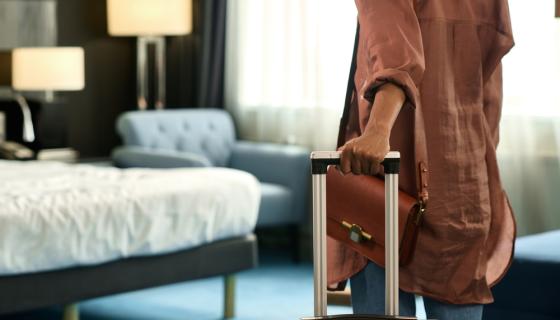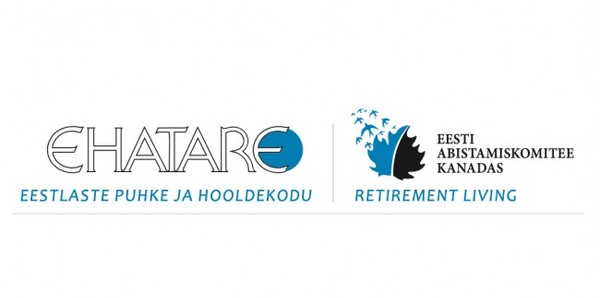Dear friends.
Welcome, and thank you for the opportunity to be together again. For the fourth year in a row, I would like to start by expressing a few thoughts that I consider important on this particular 20th of August.
As of today, Estonia has been re-independent for 19 years, and it is not too early to say that Estonia has completed the first phase in its development. Estonia has done well. One of the mantras we repeated as we restored statehood – that history must not repeat itself, that we must not repeat the mistakes of the last period of independence – no longer has the same importance it once did.
In the 1930s Estonia's leaders chose isolation. It was believed that developments in Europe and the world did not affect us. Independence was equated burying one’s head in the sand and autarky. It was believed that openness, criticism and a free press would interfere with wise leadership rather than encouraging debate about the country’s possible development paths. It was believed that culture and state were completely separate things.
Dear friends.
The restoration of Estonian independence and rebuilding of statehood proceeded on different grounds. First of all, and perhaps unexpectedly, it was the creative community who carried aloft the flame of freedom. In the Letter of Forty Intellectuals in 1980, literati and artists took great risks to express their concern about the continued survival of the Estonian people and language. Eight years later, at the congress of creative unions, they publicly aired their grievances over all of the aspects of the occupation and lack of democracy.
In our era of re-independence, which has lasted close to a generation, we have learned from our previous unfortunate experiences. They have served as our roadmap for doing things differently; for doing things right.
Let us be honest: in everything pertaining to freedom of speech, transparent governance and engagement with budding civil society, Estonia has achieved much more than nearly all of the other formerly captive nations. In some areas, we have achieved even more than the countries and societies that were fortunate to live in a democratic society immediately after World War II.
Naturally this does not mean we should be forever patting ourselves on the back. But we should admit that we have achieved something and that we have succeeded. We don’t need to be unduly modest.
Estonia’s transitional period – its return to Europe’s fold – is complete. This should discredit the fears that we still might fail, that everything is still uncertain until Sunday, 10 November 2013, the day on which re-independent Estonia will have outlived its first era of independence.
I understand that whenever Estonia fares poorly, as its economy did for the past two years, gloominess sets in. But why were we also gloomy and dismissive of our accomplishments when everything was going well? Why do we persist in listening to and reading predominantly negative opinions even now, when things are gradually starting to turn for the better? Perhaps it is only because we yearn for an even better, more prosperous today and tomorrow. But perhaps it is also because we do not have enough faith in our country and in our ability to succeed. Perhaps we are afraid that everything is doomed anyway.
Beauty is in the eye of the beholder, and thus it is hard to objectively appraise our accomplishments and shortcomings. Fault can be found in anything made by the hands of man. We cannot dispense entirely with finding faults, because only honest criticism allows us to change and to look for new and better solutions.
Yes, we have made it. But this is not the end of history, as was commonly said 20 years ago in discussing world affairs.
We struggled for 20 years to secure our liberty. We met criteria and cleared bars, carried out reforms and did our homework. Estonia was like a student who arrived at school – Europe, in this case – decades after class had begun. By then, the curriculum had long been in place.
That era is now over. We are no longer the best student in a remedial class. After 1 January 2011, when the euro is adopted, only self-imposed goals will remain. Like a high school senior pondering his or her future, we must decide what our next goals will be.
We face perhaps the most important choice of our independent existence: to go to university or to enter the workforce? What to study? Science, or something less rigorous? Pursue a successful career in business or art? Complete compulsory military service or hope for a furlough?
We can no longer hope that someone will make the right decision for us, or take us by the hand and lead us where we want to go. It is our decision and ours alone. Parliament, government and – ultimately – the president have the responsibility to make these decisions. But the right and the authority to make these decisions come from the mandate they receive from the people on the day of elections.
Yes, Riigikogu elections are on the way. We already sense them, like a thunderhead building on the horizon. Soon the first peals of thunder will drown out the discussion. As for the lightning flashes, they will be too brief to illuminate anything but the slogans.
But we don’t have to accept this – it this can be our movie. After all, our votes are being courted; we are the ones targeted by the advertisements. We are the ones who decide whether to buy it or not. This time, we will decide according to which road Estonia chooses for its future – which road, not which rewards.
Dear friends.
Every evening on the 20th of August, we gather here to reaffirm the fact that the restoration of Estonian independence was not some service performed by a small group of people or a particular politician. It was the will of the people, an endeavour inspired and celebrated in song and verse by our literati and intelligentsia, all of you.
Although in normal times, it is natural for artists and musicians to engage in creative pursuits and not have to take to the barricades, remember that it does lie within your power to prod, rein in and guide politicians, and indeed all of society, as you deem necessary.
Let us consider the Estonian language, which was defended during the occupation in defiance of repression. Now, with external pressure having vanished, we have left our language to grow untended. We have often simply borrowed foreign words to fill the gaps caused by our own development gap. In the raw, such loan words seem misleading, mechanically grafted on to our language; they do not give the true flavour of things or they convey the meaning inaccurately.
But we know the history of our language fairly well. We know that many words in common use today were thought up only early in the last century. This should serve as encouragement for us to devote more attention to modernizing our language instead of copying and pasting foreign words into Estonian.
This year is the 130th anniversary of the birth of linguist Johannes Aavik, who contributed so many neologisms to the language, and we should really erect a monument to him. And what would be more fitting than to do so by coining new words? I truly hope that Estonians, and the creative community in particular, will think about concepts that we have lacked to this point in our language. I hope we think about which words should be created and derived so that our own language would be just as rich as our lives, which have changed so much during our independence. We would then be able to describe many of the phenomena that did not exist during the Soviet era.
With this in mind, on 23 August I will be announcing a competition for new Estonian words.
Dear friends.
Language is only one part of our independent Estonian environment. Our surroundings are just as important. On their own, and generally without state assistance, organizations such as the Uus Maailm and Telliskivi Society in Tallinn and the Supilinna Selts in Tartu have fostered a more people-friendly and pleasant living environment. The same is true of a multitude of organizations on the village level in the countryside.
These projects all debunk the myth of Estonians as individualists who want to be left alone. Or at least they do away with the part of the myth we use to justify our cooperation breakdowns.
Transforming our surroundings is not a one-off action. It is a continuous, concerted effort. We undertake this work ourselves and for ourselves, independently, as citizens of an independent nation.
Ethos – the intellectual and ethical atmosphere – is an integral part of our independence and the environment in which we live. It also includes the extent to which we sense the freedom that we have regained, and how freely we make our decisions. I am worried that our level of political discourse, which often rakes the gutters, is spreading to the cultural sphere, bringing with it tolerance and antagonism. I am especially concerned about the central message implicit in such attacks – that our cultural figures are not allowed to express their opinion.
This frightens me, as many have already concluded that it is wiser to bite one’s tongue; that it is wiser to remain piously silent, to tolerate a diktat of stupidity and go against one’s conscience while defending economic well-being, be it one’s own or that of one’s professional associations.
If the tandem of money and party politics is allowed to trump free speech and expression – if dissent is silenced – that will rob the Estonian soul and thought of its elemental spark. As president, I cannot remain a complacent onlooker to such a development. Neither can any citizen who supports a democratic Estonia.
And this is the inspiration for my message to you: Whatever you do, do not confine yourself to being an artist, but speak out in society! As a state, yes, we may be standing on our own feet, back in Europe again, but it will take more than one generation for democracy to become fully rooted. Our work must continue.
My dear friends.
In the century before last, our goal was to become a nation. Twice in the last century, our goal was to become a sovereign state.
Recently we thought that our goal to become rich, and thought only of money. Actually, we will be rich when we want to continue to live here and make better our lives, our families, our surroundings, our language and culture – without fear of coming catastrophe, without intimidation or vulgarities, in a secure and pleasant manner. This is something that lies only within our own power, as free individuals.
Happy Re-Independence Day. And I wish you the best for the never-ending process of becoming independent.
(Office of the President
Public Relations Department)
President Ilves at the reception marking the anniversary of Estonian re-independence
Eestlased Eestis | 23 Aug 2010 | EWR
Eestlased Eestis
TRENDING























